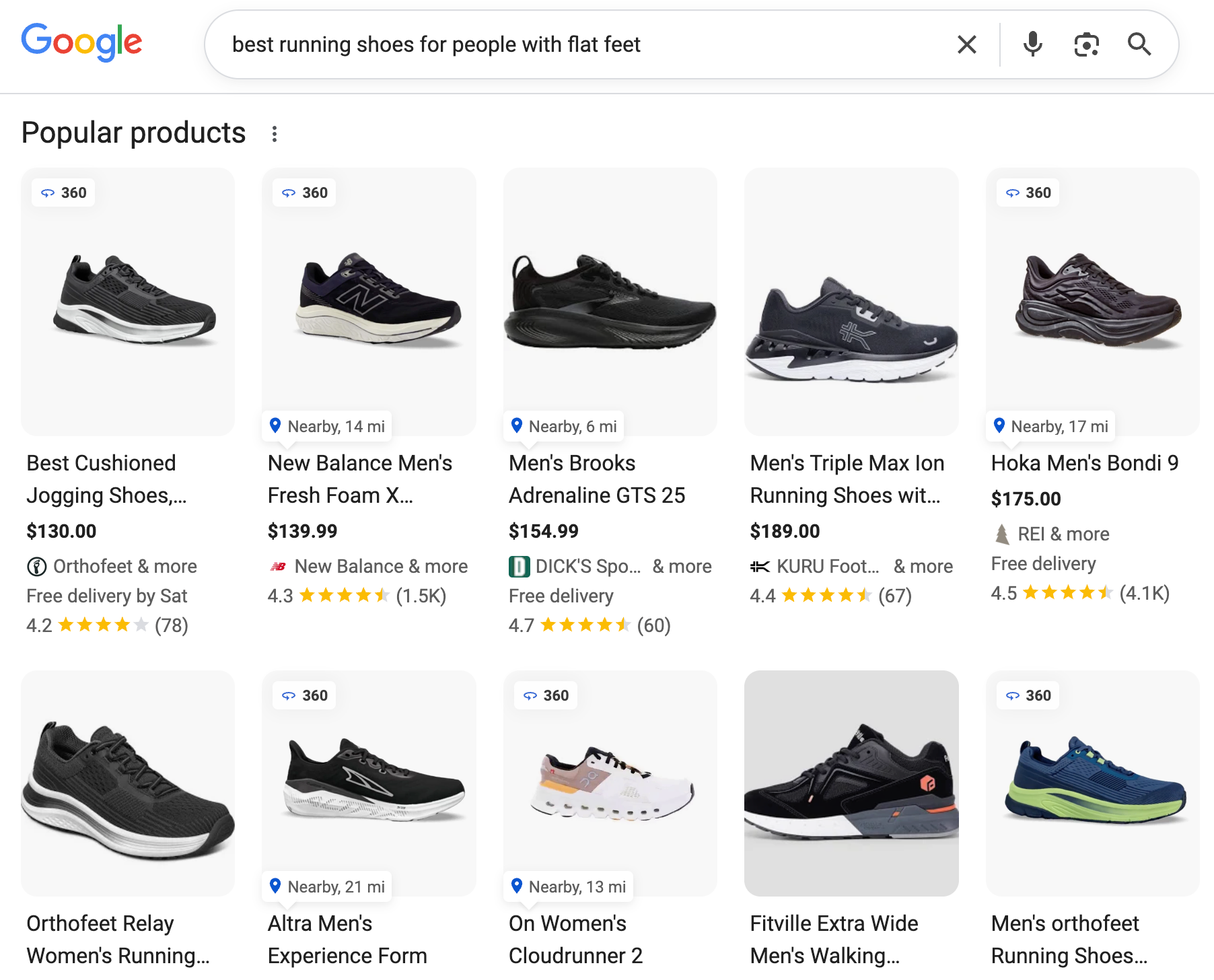|
Ben Thompson interviewed Michael Morton this week, where he discussed some examples of where ChatGPT was much better at finding good running shoes for people with flat feet than the traditional Google results did. He also mentioned that when you switch Google search over to AI Mode, AI Mode returns better results as well. Now, when I say "traditional Google results", that’s not exactly what I mean. He’s specifically talking about the first item shown on the search results page, which just so happened to be advertisements.  Something like this So these shoes aren’t necessarily the best options, but they might be the best options among the companies who paid to show up in Google search results. And you know what? Fair enough. I think given the fact that Google’s AI Mode performs similarly to ChatGPT, it indicates that Google is indeed finding good matches, it’s just that the paid spots at the top of the page take precedence. After all, when you ask ChatGPT, Gemini, Claude, or Google AI Mode a question like this, they all search the web (often with Google as the search back end), read those top results, and parse their answers from those. Google Search often gets the same results as the chatbots, but Google Search's economics dictate you ought not show the best results first. Michael Morton goes on to say that people will start to notice this more and more as they do searches for products to buy in ChatGPT or Google’s AI Mode. They’ll trust those responses more and convert on those links more often because they’ll come to trust those results as more reliable than Google’s. He then goes on to explain how this is a huge revenue opportunity for ChatGPT because suddenly those three links that it returns in its response are more trustworthy, drive much higher conversions, and are therefore worth much more for advertisers to get in. Of course, you’ve surely already had the same thought as me: "wait, doesn’t that just replicate the Google problem all over again?" And I would say yes, that is absolutely replicating the Google problem all over again, just with a different product. As someone who’s been at this for a long time now, it is really the enshittification cycle that happens over and over again. We can look at the big companies out there today, such as Google, and how we want something fresh and better. Of course, the funny thing is, 10-20 years ago, all these companies we’re complaining about today were the new kids in town shaking things up, delivering incredible user experiences, and blowing away the old guard. It’s just that over time, their never-ending need to increase revenue to infinity causes their incentives to change, and they need to become the old guard and enshittify their products. As we sit here near the end of 2025, three years after ChatGPT’s launch, I think it’s very fair to say that ChatGPT is part of the new guard, coming in and doing a lot of things better than the old guard. But you can hear in answers like this, how we’re already talking about the path towards enshittification. We’re already talking about how they move past the pure (arguably) best responses they do now and move to an advertising model that shows who paid the most, not necessarily what’s the best choice. And boom, ChatGPT’s responses are less trustworthy. People are like, "gah, it’s full of ads, I want something new," and that’ll open up space for someone new to come along. It’s the same cycle that replays over and over and over again.
|